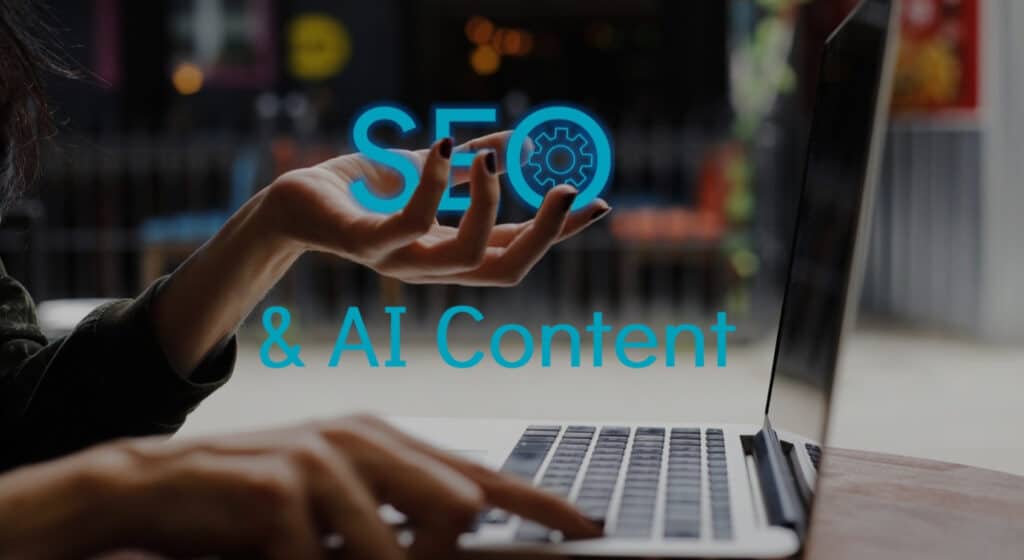Is AI content bad for SEO? The short answer is not necessarily. Google’s primary concern is the quality and value of content rather than its origin. If your AI-generated content meets the same standards as human-written content, it should not negatively impact your SEO efforts.
As AI progresses, it has become a widely utilised resource for content production. With many AI tools available today, many small business owners, marketers, and writers are left wondering about the potential impact on their search engine optimisation (SEO) efforts.
In this blog post, we will explore the potential impact of automatically generated content on SEO performance, analyse its quality, assess Google’s position on automated material, and provide strategies to effectively leverage such tools while preserving website compliance per Google’s Webmaster Guidelines (now called Google Search Essentials).
Finally, we will discuss strategies to effectively leverage AI writing tools while ensuring your website complies with Google’s guidelines and maintains its rankings in search outcomes.
1. Understanding the Impact of AI Content on SEO
As artificial intelligence (AI) advances, it is becoming increasingly popular in various sectors and industries, including content creation. This raises a critical question for small business owners, marketers, content writers, copywriters, and bloggers: Is AI-generated content bad for SEO?
This section will investigate the implications of AI-produced content on SEO performance.
a) Potential Benefits of Using AI-Generated Content

Increased Efficiency: One significant advantage of using AI tools for creating content is that they can save time by automating repetitive tasks such as keyword research or meta tag generation.
Data-driven Insights: By leveraging machine learning algorithms and big data analytics capabilities, AI-powered tools can provide valuable insights into user behaviour patterns and preferences that can be used to optimise your website’s overall performance.
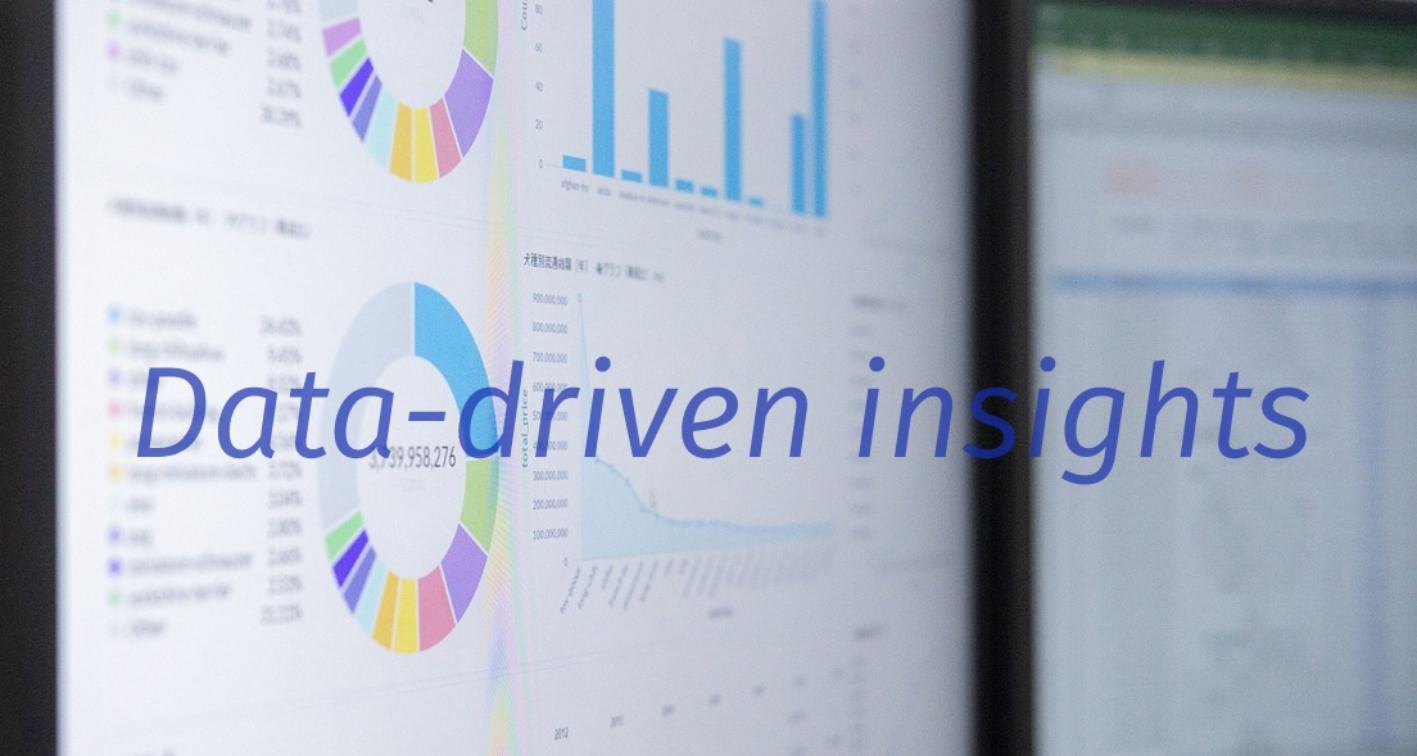
Semantic Analysis: Some advanced AI solutions are capable of performing semantic analysis, which helps improve the relevance and quality of your site’s written material by identifying key themes or topics within a given text.
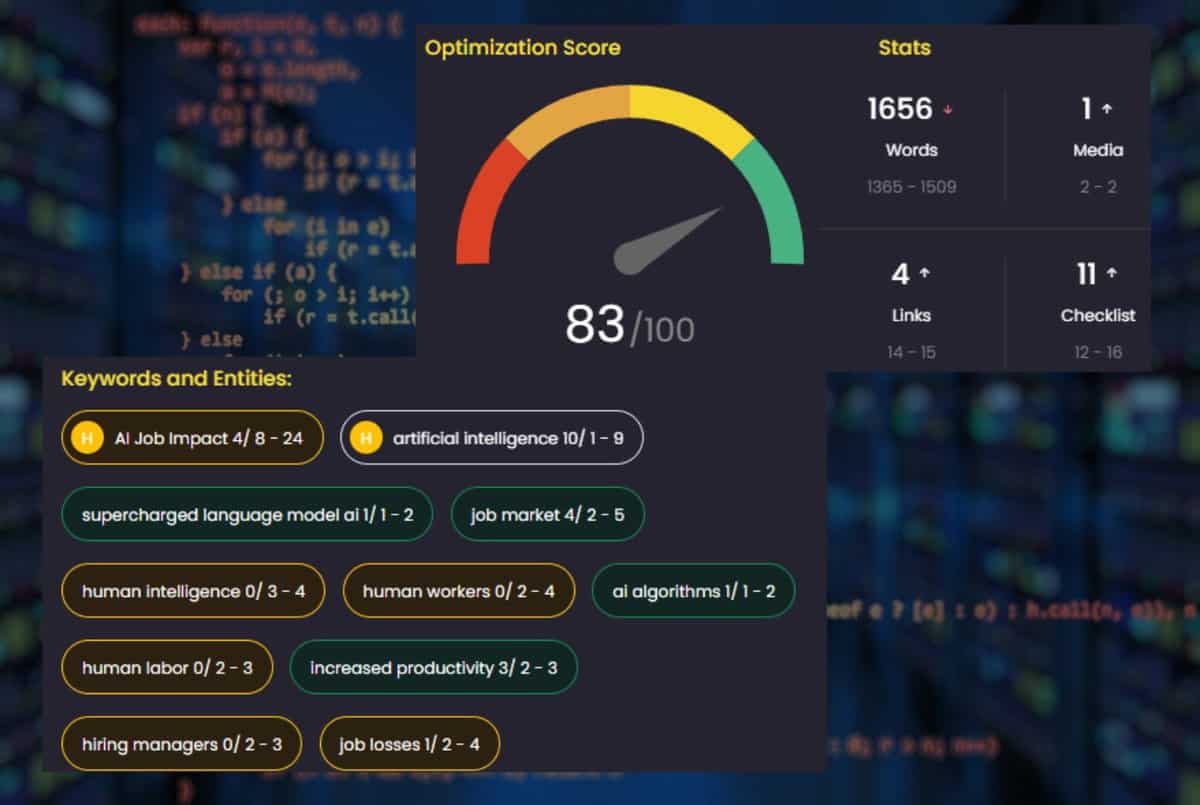
b) Potential Drawbacks of Using AI-Generated Content
Lack Of Creativity And Originality: While some sophisticated systems have made significant strides in producing human-like text outputs, Google has warned against relying solely on using AI to create content as it may lack the creativity and originality that human writers bring to the table.
Inaccurate Information: There is a risk of generating inaccurate or misleading information when using AI tools, which could negatively impact your site’s credibility and trustworthiness in the eyes of both users and search engines.
Potential SEO Penalties: If Google detects that your website relies heavily on low-quality, automated content, you might face penalties that can harm your site’s overall rankings. This is especially true if such content violates Google’s guidelines.
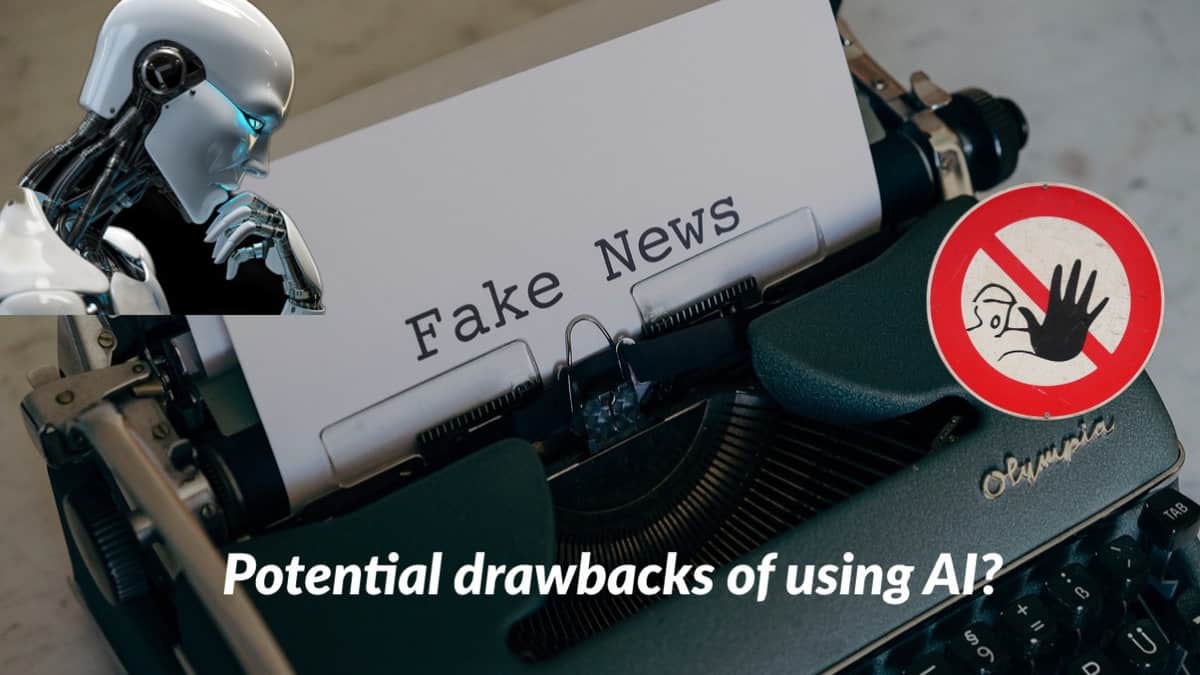
Key Takeaway:
Before implementing AI-generated content, it’s important to consider both the potential advantages and disadvantages. Comprehending the consequences of AI on SEO can aid in making wise decisions when it comes to using this technology for digital marketing.
The impact of AI content on SEO can be complex, but understanding it is key to leveraging its potential. Evaluating the worth of AI-generated material can aid you in deciding whether it is suitable for your SEO plan.
2. Assessing the Quality of AI Content
To understand whether automatically generated content is bad for SEO, assessing its quality and accuracy is crucial. While some may argue that AI content lacks human touch and creativity, recent advancements in AI technology have significantly improved the capabilities of these tools.
a) Readability and Engagement
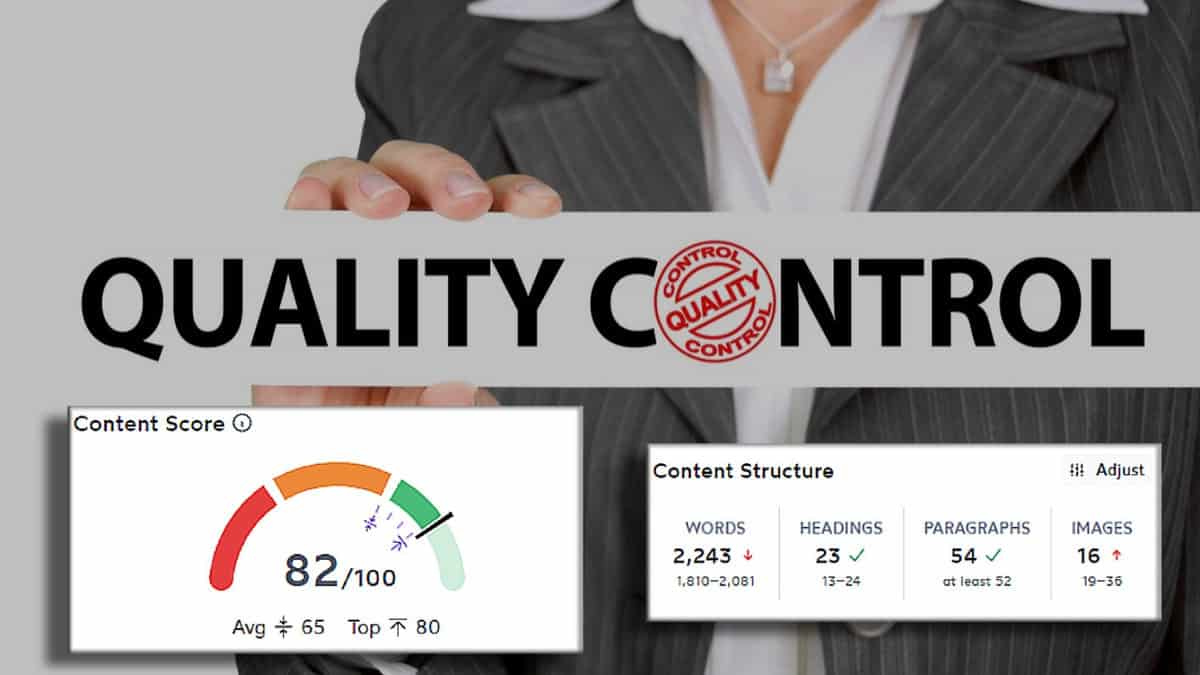
One key aspect of high-quality content is readability – how easy it is for users to read and comprehend the information presented.
Advanced AI writing tools like Content at Scale, Surfer SEO and Jasper can effectively manage many readability factors, such as sentence length, word choice, and paragraph structure. These tools are designed to generate engaging content that keeps readers interested while providing valuable information.
b) Relevance and Accuracy

Another important factor when assessing the quality of AI-generated content is its relevance to your target audience’s needs or interests. Advanced algorithms used by top-tier AI writing software can analyse vast amounts of data from various sources in real-time, ensuring that generated content remains relevant.
To maintain accuracy within your text, fact-checking via human review should still be performed manually since even sophisticated algorithms might make mistakes or misinterpret certain pieces of information.Visit our partners,shoes – leaders in fashionable footwear!
Use reputable data-driven insights (statistics), expert opinions or case studies to illustrate the credibility of your sources.
c) Keyword Optimisation

Keywords are an important factor in achieving success with SEO, as they help search engines understand the topic of your content and rank it accordingly.
Many AI writing tools, such as Content at Scale, Jasper and Surfer SEO, now offer built-in keyword optimisation features. They allow users to input their target keywords and have the software generate relevant, well-optimised content. (For further information, see: How to Use AI Content Writers)
To ensure optimal results, consider using a combination of AI-generated relevant keywords (e.g. using OpenAI’s GPT-4) with manual keyword research using tools like Ahrefs Keywords Explorer, Moz Keyword Explorer, or Google’s own Keyword Planner.
d) Originality and Plagiarism Prevention
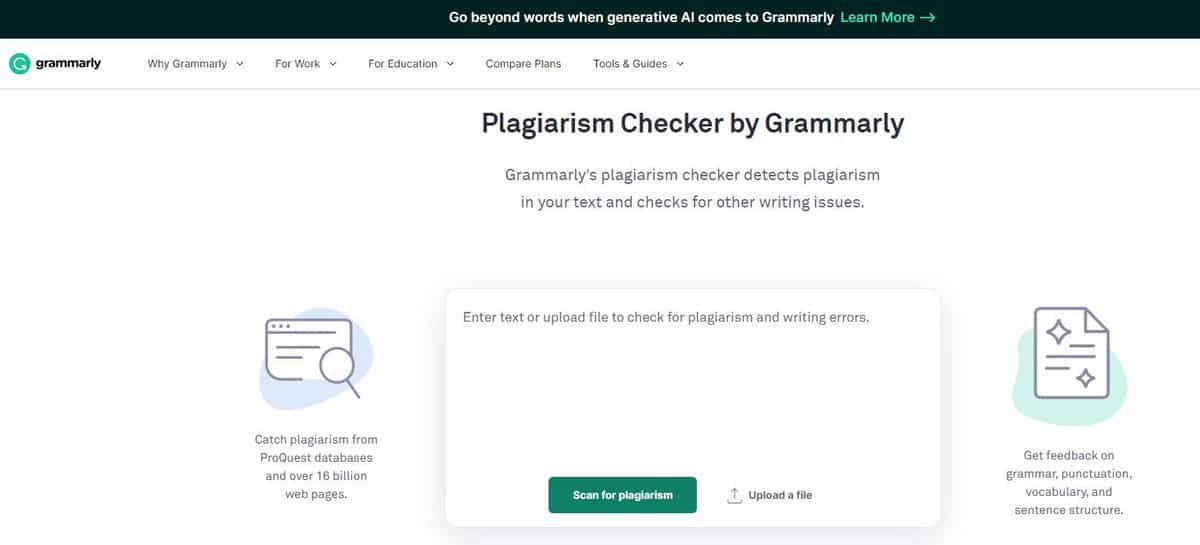
Maintaining originality is essential to ensure the quality of AI-generated content for SEO and prevent penalties from Google. Duplicate or plagiarised content can lead to penalties from Google.
Fortunately, many AI writing tools are designed to produce unique text by analysing existing online data without copying directly from sources. However, always double-check generated texts using AI tools such as:
plagiarism detection software (e.g. Copyscape or Grammarly); and
software that can automatically detect content generated by an AI (e.g. Content at Scale and OpenAI’s Text Classifier)
Key Takeaway:
Using AI to create content can be effective for SEO if it is of high quality and accurately reflects the target audience’s needs.
AI writing tools such as Content at Scale, Jasper and Surfer SEO can improve the generated text’s readability, relevance, accuracy, keyword optimisation, and originality. However, you should still perform manual fact-checking to ensure credibility.
By carefully assessing the quality of automatically generated content and taking appropriate measures to optimise it, marketers can effectively leverage these tools for their SEO strategies. Examining Google’s stance on such content will provide further insight into this topic and help us understand its potential impact on search engine rankings.
3. Examining Google’s Stance on AI Content
This section will investigate Google’s stance on using AI content for SEO Optimisation. As a business owner or marketer, it is essential to comprehend Google’s view and handling of automatically generated content.
a) Google’s Guidelines on Automatically Generated Content
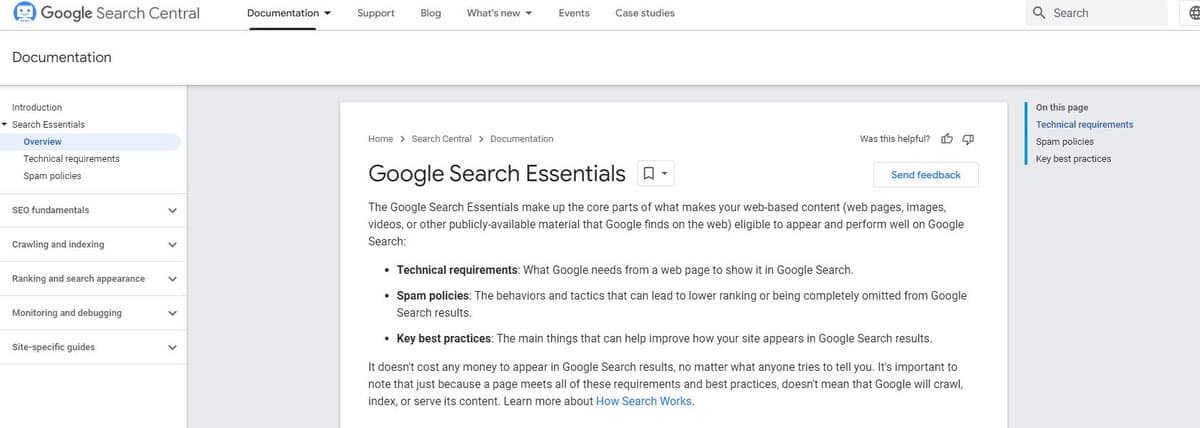
Google’s Webmaster Guidelines (now called Google Search Essentials) explicitly mention that automatically generated content is not recommended for websites aiming to rank higher in search results. The guidelines classify auto-generated content as any text produced by an algorithm without human intervention, which includes AI-generated copy.
The guidelines state that pages with auto-generated content provide no added value to users and may be considered spammy by Google.
If your website contains auto-generated content violating these guidelines, you might face penalties from Google, leading to lower rankings or even removal from search results altogether.
b) Distinguishing Between High-Quality and Low-Quality Content

However, not all automatically generated content falls under the category of low-quality or spammy material.
Some advanced tools like Content at Scale and OpenAI’s GPT-4, when used correctly and responsibly by skilled writers, can produce high-quality articles that are informative and engaging for readers.
Google’s primary concern is the quality and value of content rather than its origin. If your auto-generated content meets the same standards as human-written content, it should not negatively impact your SEO efforts.
c) Best Practices for Using AI Material in SEO

To ensure that your content aligns with Google’s guidelines and positively contributes to your website’s rankings, follow these best practices:
Human review: Always have a skilled writer or editor review and edit the copy before publishing it on your website. This ensures that the content is accurate, engaging, and error-free.
Add unique insights: Combine AI-produced text with original research or expert opinions to create comprehensive articles that provide real value to readers. Google’s E.E.A.T. guidance encourages this – see the video below from Matt Diggity, who summarises E.E.A.T. suggesting that it’s via backlink reference from such authoritative websites that can add credence to your material.
Avoid keyword stuffing to manipulate search rankings: Just like with any other type of content, avoid overusing keywords unnaturally when using AI-generated material. Instead, focus on creating high-quality material that addresses user intent.
Maintain ethical standards: Be transparent about using AI tools for generating parts of your content if necessary but always prioritise providing helpful information to users above all else.
Key Takeaway:
Google’s guidelines state that automatically generated content, including AI-generated copy, is not recommended for websites solely aiming to rank higher in search results.
However, high-quality AI-generated content can positively contribute to SEO efforts if it meets the same standards as human-written articles and follows best practices such as adding unique insights and avoiding keyword stuffing.
Therefore, developing strategies to leverage such content effectively will be critical for businesses to stay competitive and maximise SEO performance.
4. Developing Strategies to Leverage AI Content Effectively
Using AI to create content in your SEO strategy can be a game-changer if done correctly. By understanding the capabilities and restrictions of AI technology, an approach can be designed to make full use of its potential while avoiding any adverse effects on your website’s search engine rankings.
a) Utilise AI for Research and Ideation
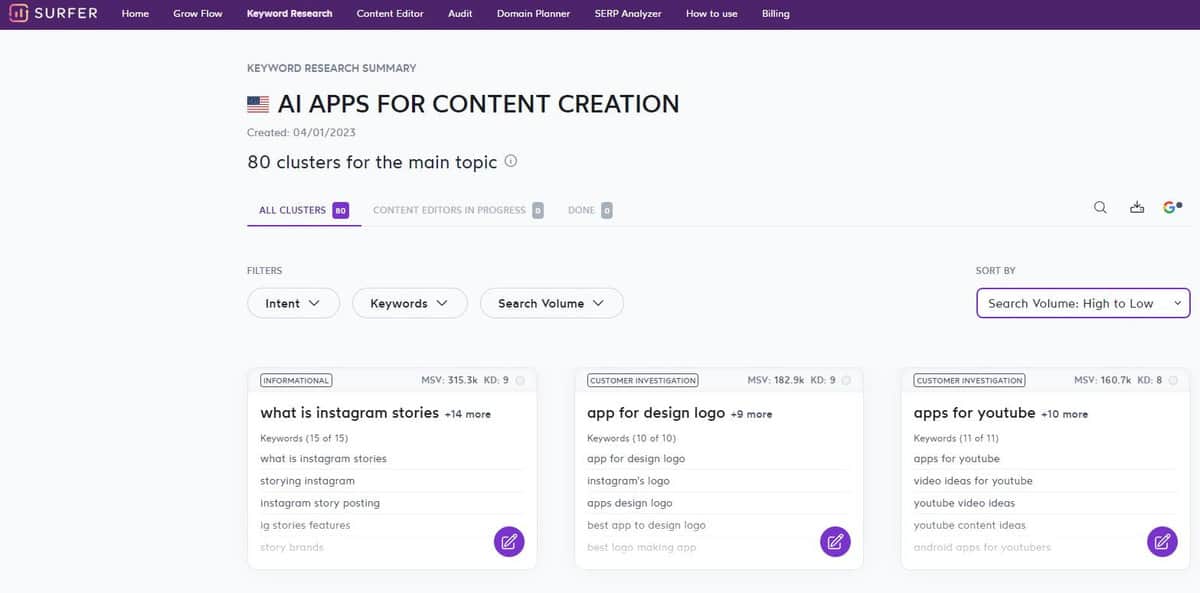
One way to leverage AI effectively is by using it during the content creation’s research and ideation phase. Tools like Surfer SEO or MarketMuse can help identify relevant topics, keywords, and questions based on user intent data, giving you valuable insights to create high-quality content tailored for your audience.
b) Optimise Existing Content with AI Assistance
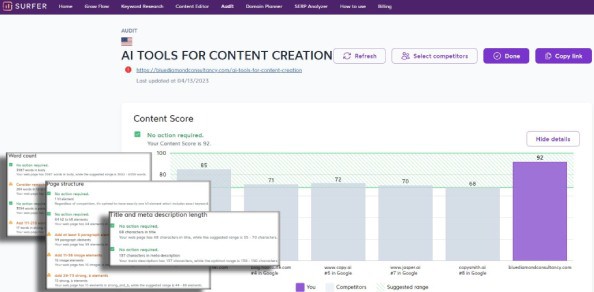
Rather than relying solely on AI to generate new articles from scratch, consider using these tools as assistants in optimising existing content pieces. For example, SurferSEO provides suggestions for improving keyword density, readability scores, and other essential elements that contribute positively towards SEO performance.
c) Combine Human Expertise with Machine Learning Capabilities

To ensure quality control over the final output of your written material without sacrificing efficiency gains provided by automation technology, combine human expertise alongside machine learning capabilities.
This means having skilled writers review/edit/proofread all generated text before publishing online, ensuring both accuracy & relevancy within each piece produced through this collaborative process.
d) Monitor Performance and Adjust Strategies Accordingly
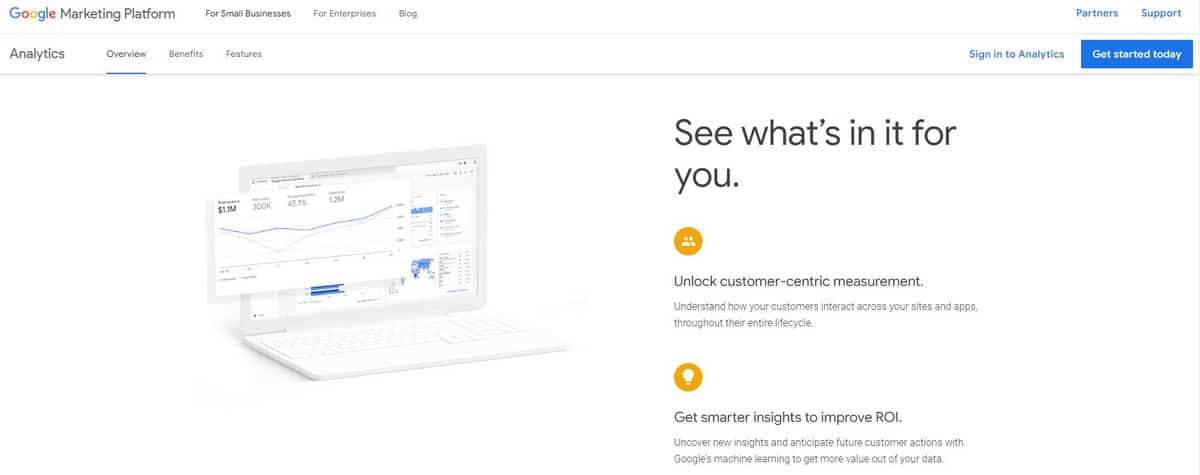
Keep track of how your AI-generated content performs in terms of search rankings, user engagement, and conversions. Use analytics tools like Google Analytics or Ahrefs to measure the success of your strategy and make data-driven adjustments as needed.
Set up regular performance reports for your AI-enhanced content pieces to monitor their impact on SEO metrics over time.
Identify areas where AI-generated content is underperforming compared to human-written counterparts – then adjust strategies accordingly (e.g. by incorporating more human input into those specific sections).
Key Takeaway:
To effectively leverage AI-generated content for SEO, incorporate it into the research and optimisation phases of content creation while combining human expertise with machine learning capabilities.
Monitor performance regularly using analytics tools to make data-driven adjustments as needed. By doing so, you can maximise efficiency and effectiveness in this exciting new frontier without compromising quality standards.
FAQs
Is AI-generated content bad for SEO?
AI-generated content can be both beneficial and detrimental to SEO, depending on its quality. High-quality AI-written content that is relevant, informative, and engaging can improve your site’s ranking. However, low-quality or spammy AI-generated content may harm your website’s reputation and search engine rankings.
Is AI-written content good for SEO?
AI-written content can be good for SEO if it meets the criteria of high-quality, unique, and valuable information that addresses user intent. By using advanced natural language processing algorithms (e.g. as employed by Content at Scale and OpenAI’s GPT-4), you can create well-crafted articles that appeal to both users and search engines.
Does Google penalise AI-written content?
Google does not specifically penalise AI-written content. However, it does penalise low-quality or duplicate material regardless of whether humans or machines created it. If your AI-created articles are well-researched, original, useful to readers, and follow Google’s guidelines, they should not face penalties.
Does Google penalise AI Content in 2023?
As long as the generated text adheres to Google’s Webmaster Guidelines, there shouldn’t be any penalty based on the use of artificial intelligence alone. Focus on creating high-quality materials with AI that cater to user intent and provide value, ensuring a positive impact on your website’s SEO in 2023.
Final Thoughts

Using AI to create material can be advantageous for SEO. However, ensuring that the quality of AI-generated material is adequately high is essential. Input by a human being is essential in the review and edit phase of the content creation process.
Google does not ban or penalise AI-generated content, but its algorithms are designed to detect low-quality material and may give preference to more humanised copy. When used correctly, such content can help businesses quickly create engaging and informative pieces while freeing up resources for other tasks.
Ultimately, understanding how Google evaluates AI-generated text is critical in determining whether this technology will benefit your SEO efforts or do more harm than good.
What strategies do you employ to stay on the right side of Google’s Webmaster Guidelines?
Author: Darrell Chau
Date: 20 April 2023
If you are interested in more posts like these, sign up for the newsletter using the blue icon above.
